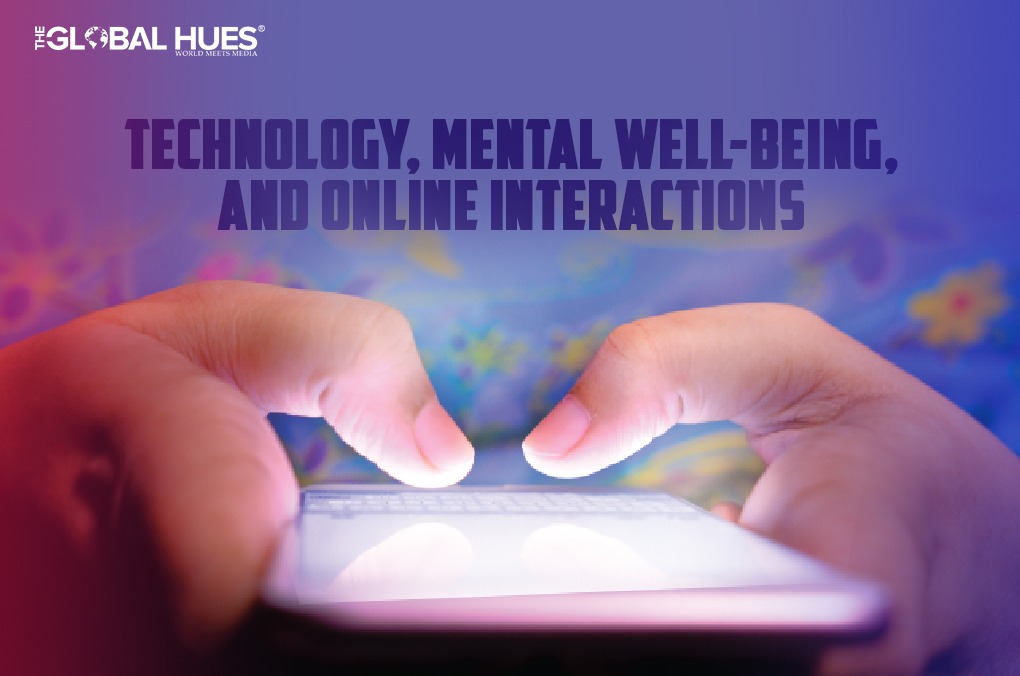(The article is developed in partnership with BetterHelp)
As technology evolves, its impact on various aspects of our lives becomes increasingly apparent. From revolutionizing communication to reshaping industries, the internet has fundamentally changed how we interact with the world around us. As with any change, there are implications for mental well-being.
The Digital Revolution
The proliferation of the internet has ushered in a new era of connectivity and convenience. With just a few clicks, we can access information, connect with others, and conduct business transactions from virtually anywhere in the world. This unprecedented level of access has undoubtedly transformed our everyday lives. It offers countless opportunities for efficiency and innovation.
The social aspect of the internet is fascinating. It’s far beyond a tool for work and productivity. A continual debate rages over whether it makes us more or less connected.
While access to others has expanded since the internet became a part of everyday life, has it changed the nature and depth of our communication?
Has information overload stressed or even desensitized us?
What impact might these factors have on our mental wellbeing?
Navigating the Online Landscape
While the internet brings undeniable benefits, it also presents unique challenges for mental health. The constant barrage of information, social media pressures, and digital overload can contribute to feelings of stress, anxiety, and overwhelm.
Social media has its own effect on both our connections and stress levels. The Pew Research Center conducted a study about social media use. Social media users who participated reported greater feelings of connectedness with their peer group. However, the study also notes evidence of stress related to social media usage. Participants’ backgrounds played a role in their answers and results varied across demographics.
Moreover, the anonymity of online interactions can lead to cyberbullying, harassment, and other forms of digital abuse, further exacerbating mental health concerns. Another Pew study revealed that,”Roughly four-in-ten Americans have personally experienced online harassment, and 62% consider it a major problem.”
Given this bit of data, how might we maximize the beneficial effects of the internet while properly managing our mental health?
Addressing Mental Health in the Digital Age
In response to these challenges, there has been a growing emphasis on promoting digital well-being and resilience. The concept of digital resilience refers specifically to the process of positively integrating negative online experiences.
Organizations and individuals alike are recognizing the importance of fostering healthy online habits, setting boundaries, and prioritizing self-care in the digital realm. Internet addiction is a growing field of study that investigates the various potentially harmful effects of excessive internet use.
Additionally, mental health professionals are leveraging technology to expand access to care through teletherapy and online support networks.
Practicing Healthy Boundaries For Digital Use
If you think you use the internet too much, if it’s making you feel bad or disrupting your life, it might be time to seek help. A qualified therapist can help you identify and develop coping skills. These skills may give you other outlets for stress relief and pleasure. Simultaneously, you’ll reduce your screen time.
Another way to practice online boundaries involves the way you interact with others. It’s ok to take time for yourself rather than being constantly available. Your friends and family will understand. If they seem offended or confused, try having a conversation about your reasoning. It may even inspire them to do the same!
You can also try transitioning some of your interactions with loved ones into physical space. Maybe your family would like to set a new habit. Weekly or monthly gatherings can be a way to foster strong connections while stepping away from our devices.
It’s also challenging for some people to avoid online arguments. We’ve all seen the comments section of a post devolve into a sniping match. It may feel satisfying to engage at first, but ultimately, it may create stress for some.
If you do find yourself falling into online arguments, the following anger management strategies may help.
Don’t Feed The Trolls
Trolling and online bullying are more advanced problems. Some research suggests a link between certain personality disorders and disruptive online behavior called trolling.
A paper from Perdue University examined the difference between cyberbullies and those who engage in trolling behavior. It’s a complex issue, however, the paper categorizes both forms of behavior as a type of online harassment.
Most people- experts and laypersons alike, agree that the best strategy is don’t engage with internet trolls and bullies. As tempting as it may be to address injustice and ignorance online, your peace of mind is often more valuable.
Managing Anger Through Mindfulness
Engaging is tempting, however. So what can we do when we feel an online fight brewing?
Whenever anger arises, it’s essential to have strategies in place to manage the emotion constructively and prevent reactive behavior. Mindfulness techniques can be powerful tools for cultivating awareness, regulating emotions, and responding thoughtfully rather than reacting impulsively. Here are some tips for managing anger using mindfulness.
Pause and Breathe:
When you feel anger building, pause for a moment and take a few deep breaths. Focus on the sensation of your breath entering and leaving your body. This simple act of pausing and breathing can create a space between the trigger and your response, allowing you to regain composure and clarity.
Acknowledge and Accept:
Instead of suppressing or denying your anger, acknowledge it without judgment. Recognize that anger is a natural human emotion and that it’s okay to feel angry. Accepting your emotions without resistance can help prevent them from escalating further.
Practice Non-Reactivity:
Rather than immediately reacting to the source of your anger, practice non-reactivity by observing your thoughts, feelings, and bodily sensations with curiosity and compassion. Notice any urges to lash out or retaliate and choose to respond skillfully instead.
Shift Your Perspective:
Challenge distorted thoughts or interpretations that may be fueling your anger. Consider alternative explanations or perspectives on the situation. Reflect on whether the intensity of your reaction aligns with the reality of the situation or if it’s being influenced by past experiences or assumptions.
Engage in Grounding Techniques:
Grounding techniques can help anchor you in the present moment and prevent rumination or escalation of anger. Focus on sensory experiences, such as noticing the sensations of your feet on the ground or the sounds in your environment. Engage in activities that promote relaxation and grounding, such as progressive muscle relaxation or visualization exercises.
Cultivate Compassion:
Extend compassion towards yourself and others involved in the situation. Recognize that everyone experiences challenges and difficulties, and respond with empathy rather than hostility. Practicing self-compassion can help soothe intense emotions and foster a sense of understanding and connection.
Seek Support and Guidance:
If anger continues to be a significant challenge, consider seeking support from a therapist or counselor who can provide strategies for managing anger effectively. Therapy can offer a safe space to explore the underlying causes of anger and develop personalized coping strategies.
For additional tips on finding the right therapist, check out this handy article: www.betterhelp.com/advice/anger/finding-the-right-anger-management-therapist/
Finding Balance
Amidst the rapid pace of digital innovation, finding balance is key to maintaining mental well-being. Setting limits on screen time, cultivating offline hobbies, and nurturing real-life connections can help mitigate the negative effects of digital overload.
Additionally, practicing mindfulness and self-reflection can foster greater awareness of our online behaviors and their impact on our mental health.
Empowering Individuals Online And Off
Ultimately, the responsibility for managing digital well-being lies with each individual. By staying informed, setting boundaries, and prioritizing self-care, we can harness the benefits of the digital age while safeguarding our mental health.
Together, we can create a healthier online ecosystem that fosters connection, creativity, and well-being for all.




